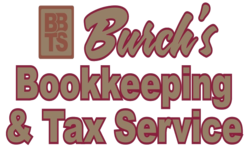 New entrepreneurs tend to get quickly overwhelmed with financial details, and start storing information in their heads rather than writing it down. The problem with this method, however, is that unpleasant surprises can pop up; important paperwork is forgotten, bills are paid late, and – the worst, this is a quick way to get in trouble with the IRS. Having a system and some processes in place from the get-go will help you make – and keep –long-term goals, improve your profits, smooth out seasonal ups and downs, and keep the IRS happy as well!
New entrepreneurs tend to get quickly overwhelmed with financial details, and start storing information in their heads rather than writing it down. The problem with this method, however, is that unpleasant surprises can pop up; important paperwork is forgotten, bills are paid late, and – the worst, this is a quick way to get in trouble with the IRS. Having a system and some processes in place from the get-go will help you make – and keep –long-term goals, improve your profits, smooth out seasonal ups and downs, and keep the IRS happy as well!
My staff and I have put together some bookkeeping ideas for young business owners, so – from Connie, Annamarie, Elizabeth, and Dianne here at Burch’s – our Best Bookkeeping tips:
- Plan for major expenses: for example, put a new computer or computer upgrade on the calendar a year in advance – it will keep that awareness in your mind, especially if you do a little research on what you need and how much it costs – and write that down too. Then set reminders on your computer calendar,
reminding you to budget for it by setting money aside every month. It will keep you from taking money out during a flush period and then finding yourself short during the slow months, which is when a major expense usually hits.
- Track your expenses: if you don’t, you might miss some tax write-offs or simply wind up short with no idea what happened. If you establish a credit card that you use only for the business, that’s as good as a basic accounting system because most card statements categorize expenses. Also, if you’ve got a credit card for the business you’re less likely to pay cash at somewhere like Staples, and then lose the receipt – and the write-off you would get if you could find it. Pens and paper add up, trust us on this one.
- Record your deposits correctly: keep your personal checking and savings accounts completely separate from your business checking accounts. If you record income for your business that was actually income from another source – you’ll wind up paying taxes on more money than you actually made.
- Set aside money for taxes: the IRS will levy penalties and interest if you don’t file quarterly tax returns on time. It’s a good idea to systematically put a portion of money aside for taxes throughout the year. Write the tax deadlines on your calendar – include enough lead-time to get the taxes ready to send in on times. In addition, – our favorite – set an alert in your computer calendar to remind you.
- Keep an eye on your invoices: if you don’t stay on top of money that is owed to you those late and unpaid bills will hurt your cash flow. Don’t send out just one invoice and think you’re done; make sure you follow through. Make the phone call if you have to, and think about levying a penalty if one of your client’s is continuously paying late. Every payment that’s late is basically an interest-free loan that you’re giving to your customer, and it will hurt you’re bottom line


